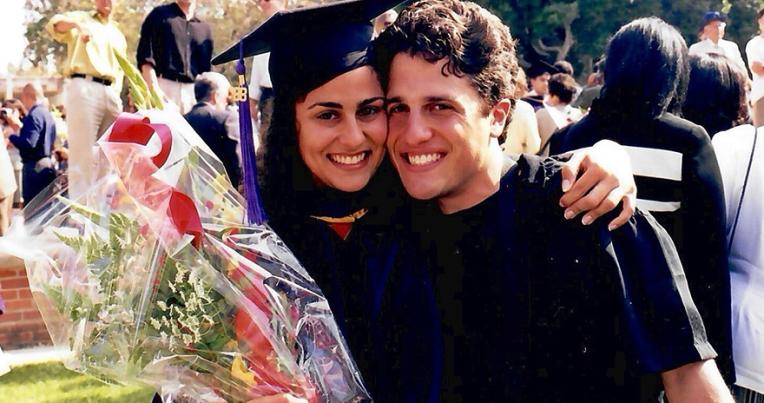Toward Zero-Emission Freight at Southern California's Ports
June 8, 2018, UCLA Covel Commons
A UCLA / UC Berkeley Law Conference. Sponsored by Bank of America
Conference Resources:
The Ports of Los Angeles and Long Beach bring more goods into the U.S. than any other ports in the country. Yet together the ports are the single largest source of air pollution in Southern California, emitting smog, particulate matter and other toxics that threaten public health in nearby communities, as well as greenhouse gases that contribute to global warming.
In November 2017, the Los Angeles and Long Beach harbor commissioners adopted an update to the 2006 Clean Air Action Plan to transition to cleaner fuels for goods movement in and around the ports in the next two decades. The plan promises large-scale changes in technology and operational efficiency for cargo handling equipment and short- and medium-haul trucking that could slash the ports' pollution and help serve as a model for global shipping and transport industries.
Achieving the vision for clean air at the ports by 2030 requires answers to several important questions: What are the prospects and potential for various zero-emission technologies – including battery electrification – to reduce pollution? How can finance, permitting and community engagement support the transition to cleaner fuels? What new policy and industry actions are needed for cost-effective deployment? This conference will discuss these and other issues that industry, government and civil society leaders must address to reach zero emissions goods movement at the ports.
Conference Program & Videos
-
Introductions & Morning Keynote
Mary D. Nichols, Chair, California Air Resources Board will discuss the economic, environmental, and law and policy context of the ports' emissions and potential transition to zero-emission technologies, as well as challenges and opportunities going forward.
-
Panel 1: State of Electrification Technologies Applicable to Goods Movement at the Ports
Electrification and other zero-emission technologies, such as hydrogen, are quickly changing with new technological innovation, increasing investment in infrastructure and evolving statutory and regulatory policies at the federal, state and local levels. Given the flux, what is the current state of the most applicable technologies for zero-emission goods movement at the ports? What are the most likely near-term prospects for deployment of this technology, in terms of feasibility and costs? What is the present state of infrastructure to support these technologies, and what investments are still needed? What are the workforce implications? What are the most critical regulatory efforts affecting deployment? Panelists will discuss these questions and more.
Speakers:
Joe Lyou, President and CEO, Coalition for Clean Air; Governor's Appointee, South Coast Air Quality Management District Governing Board
Renee Moilanen, Manager of Air Quality Practices, Port of Long Beach
Jimmy O'Dea, Senior Vehicles Analyst, Union of Concerned Scientists
Cara Horowitz (moderator), Co-Executive Director, Emmett Institute on Climate Change and the Environment at UCLA School of Law -
Challenges for Zero-Emission Trucking
This lunchtime presentation will cover the perspective of industry leaders on zero-emission trucking and some of the economic and regulatory landscapes they must navigate to deploy their technologies, including financing, infrastructure, regulatory and workforce needs.
Speakers:
Vincent Pallecchia, Strategic Account Manager, BYD Motors
Ryan Popple, Chief Executive Officer, President and Director, ProTerra
Daniel Witt, Senior Manager of Business Development and US Policy, Tesla Motors
Jordan Diamond (moderator), Executive Director, Center for Law, Energy, and the Environment (CLEE), UC Berkeley School of Law -
Financing and Other Implementation Challenges for Zero-Emission Technologies
Zero-emission technologies may face significant hurdles to deployment. In addition to technological uncertainty, barriers can include financing, permitting, lack of infrastructure, specific statutes and regulations, and various stakeholder opposition. Panelists will discuss these challenges in depth.
Speakers:
Michelle Iturralde, Senior Vice President, Bank of America
Victor La Rosa, Chief Executive Officer, President & Founder, Total Transportation Services Inc. (TTSI)
Bryon Rockwell, Managing Director, Western Region Public Finance Bank of America Merrill Lynch
Chris Shimoda, Vice President of Government Affairs, California Trucking Association
Ted Lamm (moderator), Climate Law and Policy Fellow, Center for Law, Energy & the Environment at UC Berkeley School of Law -
Policy Needs to Deploy Zero-Emission Technologies
Given potential technological uncertainty and deployment challenges, what policies are needed at the federal, state and local levels to address these challenges and ensure cost-effective, community-focused deployment of zero-emission technologies?
Speakers:
Laura Cortez, Community Organizer, East Yard Communities for Environmental Justice
Veronica Eady, Assistant Executive Officer for Environmental Justice, California Air Resources Board
Adrian Martinez, Staff Attorney, Earthjustice
Katie Sloan, Principal Manager of Innovation, Development and Controls, Southern California Edison
Sean Hecht (moderator), Co-Executive Director, Emmett Institute on Climate Change and the Environment at UCLA School of Law
